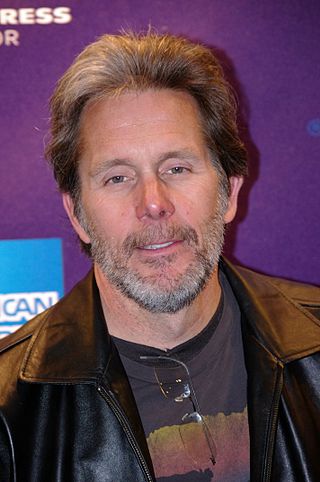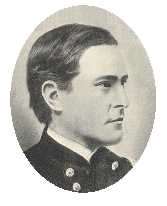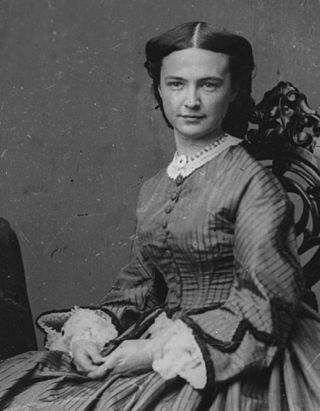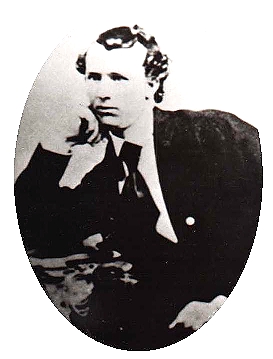
The Battle of the Little Bighorn, known to the Lakota and other Plains Indians as the Battle of the Greasy Grass, and commonly referred to as Custer's Last Stand, was an armed engagement between combined forces of the Lakota Sioux, Northern Cheyenne, and Arapaho tribes and the 7th Cavalry Regiment of the United States Army. It took place on June 25–26, 1876, along the Little Bighorn River in the Crow Indian Reservation in southeastern Montana Territory. The battle, which resulted in the defeat of U.S. forces, was the most significant action of the Great Sioux War of 1876.

George Armstrong Custer was a United States Army officer and cavalry commander in the American Civil War and the American Indian Wars.

Patricia Arquette is an American actress. She made her feature film debut as Kristen Parker in A Nightmare on Elm Street 3: Dream Warriors (1987) and has starred in many film and television productions. She has received several awards, including an Academy Award, two Primetime Emmy Awards, and three Golden Globe Awards.

Floyd Westerman was a Sisseton Dakota musician, political activist, and actor. After establishing a career as a country music singer, later in his life he became an actor, usually depicting Native American elders in American films and television. He is also credited as Floyd Red Crow Westerman. As a political activist, he spoke and marched for Native American causes.

Gary Michael Cole is an American actor. Cole began his professional acting career on stage at Chicago's Steppenwolf Theatre Company in 1985. His breakout role was playing Jack 'Nighthawk' Killian in the NBC series Midnight Caller (1988–1991). Further prominent television roles include American Gothic (1995–1996), The West Wing (2003–2006), The Good Wife (2010–2016), Veep (2013–2019), and NCIS (2021–present). Cole's voice roles include Harvey Birdman, Attorney at Law, Family Guy (2000–present), Kim Possible (2002–2007), Scooby-Doo! Mystery Incorporated (2010–2013), and Bob's Burgers (2012–present). His most notable film roles are The Brady Bunch Movie (1995) and Office Space (1999).

Amanda Michael Plummer is an American actress. She is known for her work on stage and for her film roles, including Joe Versus the Volcano (1990), The Fisher King (1991), Pulp Fiction (1994), and The Hunger Games: Catching Fire (2013). Plummer won a Tony Award in 1982 for her performance in Agnes of God. She most recently appeared in the third season of Star Trek: Picard (2023).
Evan Shelby Connell Jr. was a U.S. novelist, short-story writer, essayist and author of epic historical works. He also published under the name Evan S. Connell Jr.

Marcus Albert Reno was a United States career military officer who served in the American Civil War where he was a combatant in a number of major battles, and later under George Armstrong Custer in the Great Sioux War against the Lakota (Sioux) and Northern Cheyenne. Reno is most noted for his prominent role in the Battle of the Little Bighorn, where he did not support Custer's position on the battlefield, remaining instead in a defensive formation with his troops about 4 miles (6.4 km) away. This event has since been a longstanding subject of controversy regarding his command decisions in the course of one of the most infamous defeats in the history of the United States military.

Frederick William Benteen was a military officer who first fought during the American Civil War. He was appointed to commanding ranks during the Indian Campaigns and Great Sioux War against the Lakota and Northern Cheyenne. Benteen is best known for being in command of a battalion of the 7th U. S. Cavalry at the Battle of the Little Bighorn in late June, 1876.

Elizabeth Bacon Custer was an American author and public speaker who was the wife of Brevet Major General George Armstrong Custer, United States Army. She spent most of their twelve-year marriage in relative proximity to him despite his numerous military campaigns in the American Civil War and subsequent postings on the Great Plains as a commanding officer in the United States Cavalry.

Boston Custer was the youngest brother of U.S. Army Lt. Colonel George Armstrong Custer and two-time Medal of Honor recipient Captain Thomas Custer. He was killed at the Battle of the Little Bighorn along with his two brothers.
Son of the Morning Star: Custer and the Little Big Horn is a nonfiction account of the Battle of the Little Bighorn on June 25, 1876, by novelist Evan S. Connell, published in 1984 by North Point Press. The book features extensive portraits of the battle's participants, including General George Armstrong Custer, Sitting Bull, Major Marcus Reno, Captain Frederick Benteen, Crazy Horse, and others.

Bloody Knife was an American Indian who served as a scout and guide for the U.S. 7th Cavalry Regiment. He was the favorite scout of Lieutenant Colonel George Armstrong Custer and has been called "perhaps the most famous Native American scout to serve the U.S. Army."

Sofia Vladimirovna Vassilieva is an American actress. Notable roles include portraying the children's book character Eloise in Eloise at the Plaza and Eloise at Christmastime, Ariel DuBois in the Emmy-winning TV series Medium, and teenage cancer patient Kate Fitzgerald in the 2009 film adaptation of My Sister's Keeper by Jodi Picoult.

Olivia Carlena Cole was an American actress, best known for her Emmy Award-winning role in the 1977 miniseries Roots.

Comanche was a mixed-breed horse who survived the ambush of George Armstrong Custer's detachment of the United States 7th Cavalry at the Battle of the Little Bighorn.
George Armstrong Custer (1839–1876) was a United States Army cavalry commander in the American Civil War and the Indian Wars. He was defeated and killed by the Lakota, Northern Cheyenne, and Arapaho tribes at the Battle of the Little Bighorn. More than 30 movies and countless television shows have featured him as a character. He was portrayed by future U.S. president, Ronald Reagan in Santa Fe Trail (1940), as well as by Errol Flynn in They Died With Their Boots On (1941).

Captain Thomas Benton Weir was an officer in the 7th Cavalry Regiment, notable for his participation in the Battle of the Little Bighorn, also known as Custer's Last Stand.

Fatal Vision is a 1984 American true crime drama television miniseries directed by David Greene from a teleplay by John Gay, based on the 1983 novel of the same name by Joe McGinniss. The miniseries stars Karl Malden, Eva Marie Saint, Barry Newman, Gary Cole, and Andy Griffith. It recounts the celebrated case of Jeffrey R. MacDonald, the former Green Beret physician who was convicted of murdering his pregnant wife and their two small children.
The Triple Crown of Acting is a term used in the American entertainment industry to describe actors who have won a competitive Academy Award, Emmy Award, and Tony Award in the acting categories, the highest awards recognized in American film, television, and theater, respectively. The term "Triple Crown" is used in other competitive areas, such as the Triple Crown of Horse Racing.














